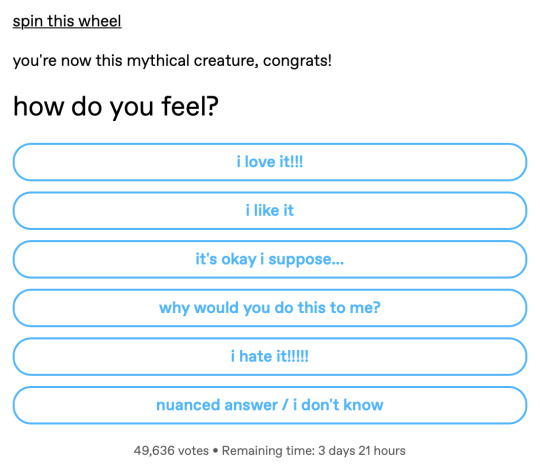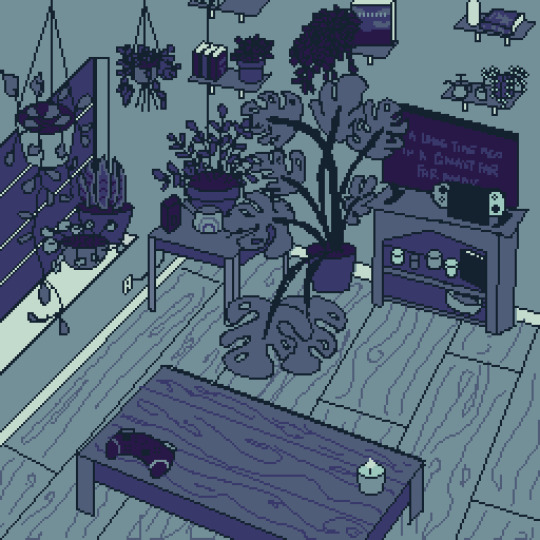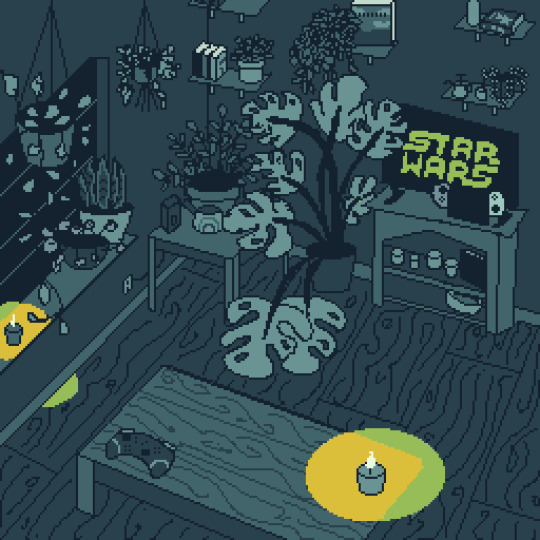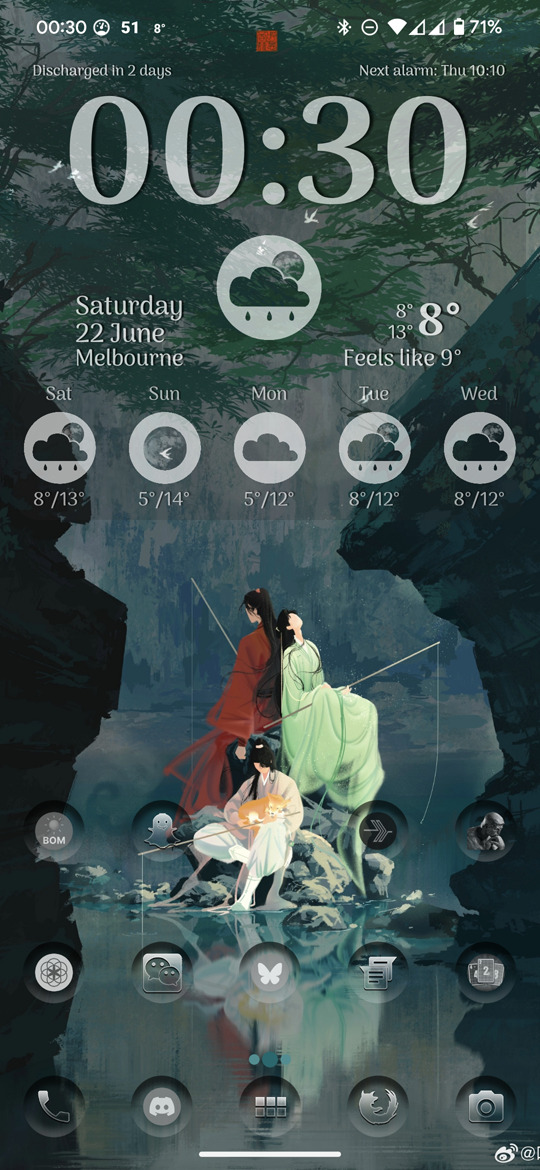#Location Address
Explore tagged Tumblr posts
Text
My cheque I've been waiting a few months for and was supposedly delivered one week ago is now beyond a doubt either stolen or missing. (:
#I realize today is April Fools Day but it seems I am the Fool#USPS informed delivery said it was delivered Tuesday and we were able to get out to the old location on Thursday#and it wasn't there#or on Friday#or yesterday#it was supposed to take care of us for at least a month#I had so many plans for it#especially because April is my birth month#literally nearly $1000 just fucking evaporated#I just can't win lol#today sucked from the moment I woke up and felt an intense depressive spiral#but this is genuinely just cherry and the icing on top of this shit cake#this job was done in December#I've been waiting since then and then jumped through so many hoops to get actually fucking paid#and I literally begged them to send it to this address or make it out to Kalen so he could cash it#specifically to save myself so much trouble and avoid this exact scenario#and they said no and sent it to the faraway old address#and USPS claims it's been delivered but it's not there#so fuck me i guess#excellent fucking start to my favourite month#I'm going to rot in bed to practice rotting in hell#though i suppose I'm already fucking here lmfao#negative blah
385 notes
·
View notes
Text





DON'T CRY BECAUSE IT'S OVER, SMILE AND WAIL AND THROW UP BECAUSE IT HAPPENED <3
(thank you so much Wanan, for real :') )
#no home spoilers#no home#no home webtoon#no home manhwa#no home wanan#been reading this for almost 2 years... there's a void in my heart.........#thank you wanan❤️ :') now turn on your location i just wanna talk to you about an epilogue :^)#this manhwa forever changed my brain chemistry and that is not a hyperbole#it literally addressed some of my own life struggles in a way that helped me (and at times challenged me a bit too)#very few manhwa do that to me
157 notes
·
View notes
Text
the vendor of theseus
#original#jokes for accountants working in accounts payable#they changed their operating name but not their remit name#then they changed their remit name#then they changed their address#they are trying to sell us different products/services than the ones we first contracted with them for#the only evidence that remains of their origins is the internal vendor number generated based on a name and location that no longer exist
76 notes
·
View notes
Text
so you've probably been warned against clicking strange links and to especially avoid revealing your personal information online, even in "private" accounts. But what about a "cute" spin-the-wheel link above a tumblr poll?? (like the post in the following screenshot)

FYI: getting people to click an external link is a great strategy for gathering more details about a mostly anonymous user in a forum or tumblr or wherever. Here's some reasons why: 1. If you shared a unique link in a restricted forum or channel or community or chatroom or public fandom blog or at the end of a fic on ao3, you can be sure only the people of interest could click on it 2. That URL could lead to fucking anything of their choosing. Do they want to do an intensive browser fingerprint or get a log of IP addresses? Do they want to estimate the hardware specs of everyone's machines? Do they want to try loading other things on the page to test for adblockers or other blacklists? (an additional kind of profiling) 3. People LOVE to give away identifying information for the sake of a poll or cute name generator. Here are some questions I've seen recently and what information it can point to: - First anime? (fuzzy proxy for age and country) - First celebrity crush? (fuzzy proxy for age and country) - First album? (fuzzy proxy for age and country) - First name using first letter of last name, Last name using birthday month (do I need to spell this out? last name and birthday month) - What word do you use for [common item]? (region, language, culture, class) - Getting people to talk about astrology (you've all given away your birth month for free, wtf) Another fun fact about "Spin The Wheel" links: they can generate ad revenue for someone! Fun fact about Quizzes: they can help build deeper advertising profiles for linkbait sites like facebook or buzzfeed or the daily mail or tmz Another fun fact: besides the info the Spin The Wheel or Name Generator pages save direct to the server, the page can encode that information back into where the wheel stops or the name it gives you. That makes it easier to gather information because it's recorded 1st on the server (controlled by person fishing to unmask someone) 2nd back in the post notes or in the discord channel or wherever. And we all know how much people want to gab about the Fun poll or survey or quiz and reveal even more information. Another fun fact about Spin the Wheel or Name Generator or Quiz pages: You might be seeing a list of options nobody else saw that only appear for IP addresses from a certain region! And if you post your result (that would be mostly unique) it's an INSTANT indication that the person from [region] is logged in. (same goes for browser fingerprint - which device a certain person has) I remember a line from an article about digital detectives (I think it was feds tracking dark web stuff), it said they wait for YEARS for someone to post or log in just to confirm a person of interest was in a certain place at a certain time. You and I probably don't remember the information we leaked years and years ago in the notes of a post or on a retweet of some idiot, but any people who might want to figure you out probably have a huge spreadsheet with everything recorded. They can and do analyze and annotate it all, and can start to narrow down where you are, how old you are, your interests, hobbies, class background, devices you use etc. You might be thinking: "but I don't worry about federal agents or intelligence agencies, why do I care?" What if tomorrow your post goes viral, truly globally Viral? You can go from tumblr nobody to target for stalkers and/or hate crimes instantly. An even more serious example from this year: What if you've been advocating for years for people that are now scapegoat of the day for the fascists? What if a federal agent is tasked with creating a list of "those people" for surveillance? The less information you have unintentionally posted about yourself the better. A perhaps more personal and private example: what if you had to get away from a city or country or person or persons or family and didn't want them to follow you? People with a grudge will go to great lengths to get back at someone
#privacy online is bigger than direct reveals of the big details like dob or location#gotta be careful#some people make it their life's work to tease out key information without you ever noticing - they're experts#be cautious and wary out there#you don't know who's reading your posts or sharing your dms or charting your ip addresses#my blog#digital privacy
32 notes
·
View notes
Text
going insane about severance.
How does outie Irving know about the dark hallway / elevator? Who is he calling? If he had a map with Burt's name and address on it, why didn't Burt know who he was?
The Milchick and Natalie conversation. The Milchick and MARK S conversation. That elevator scene made me want to THROW UP. Are they going to turn Milchick???? What is Ms Huangs DEAL? GOD I -
#severance#severance spoilers#I'm going so insane and I'm just supposed to go to bed???#the fuck bro#clarifying on the map thing bc I know Irv was keeping a list of severed employees#and he had a lot of names!#but only so many ended up on the map#how did he get Burt's address#how and why out of all of those people on that list did Burt's location end up on that map#and hey maybe it's a coincidence for the plot but. seems a question worth asking
26 notes
·
View notes
Text
having sex wantonly but saving my body for the tattoos i really want, i gotta save money bc all those artists are in europe or asia and nevermind the cost of the art bitch i have to get OVER there
#i so badly want a piece from this woman who is#in an undisclosed location in the french alps#literally no address is listed#instagram bio just says 'french alps'
11 notes
·
View notes
Text
ori and the blind forest doesn't control v well for me. any deviation from perfectly left or right on the analog stick is interpreted as up or down instead which wrecks my movement in the precision platforming sections that are required to progress. my hands are cramped from trying.
#wish easy mode applied to the platforming too and not just the enemies#gameplay loop appears to be 1 go to area 2 get ability 3 you are literally not allowed to leave unless you can utilize this ability w the#proficiency of someone who's been playing platformers for years (or video games since they were young)#i kinda lowkey dissed arkham asylum by describing it as ''game journalist friendly'' but at least what i've played of that game didn't leav#me wondering if i'm supposed to have an ability from further up the skill tree by the third location in the game bc it's the only way i can#think to address the problem at hand#hollow knight wouldn't treat me this way (haven't played it) (only watched playthroughs) (wouldn't be able to beat path of pain)#in hollow knight your reward for getting a new ability is a bunch of goodies you can now access with the ability#in ori your reward is many deaths and increasing frustration until you can finally escape platforming hell#iggy plays#ori atbf
10 notes
·
View notes
Text


living room evening
#pixel art#enticing the great users of tumblr to locate my home address break in to steal my bigass monstera
29 notes
·
View notes
Text
no fucking SHOT someone just put an address into my inbox oh my god
#i searched it up to see if it was a haha funny location but no it it seems to be a genuine residential address HELLO?????#asks#might not be the anons but STILL
15 notes
·
View notes
Text



before I go to bed. you know I had to do it to em. (post eye pics for attention)
also some full pics under the cut for the real freaks bc my makeup was cute



+ the very tired after pic lmao
#you’ll notice a lovely gleam in my eyes and those are in fact the tears of pain from trying to hold my eyes open in the sun#anyways WHO WANT ME 😍😍 any sunny simps out there let’s hear it 🫦#and also what’s ur name address and exact location right now so we can make out
4 notes
·
View notes
Text
In an Age Without Heroes: deleted scene
Author's note: The Saturday morning interview scene between Grantaire and Enjolras in chapter 8 originally started from Grantaire's arrival and was intended to go through the events of the scene that has since replaced it. This scene ended up being replaced partly because the characterizations weren't panning out how I wanted (as you see by the end) and partly because it was dragging the scene/fic. Yes, it was good background for the reader, but ultimately (as Grantaire now comments in the replacement scene) this is the same thing Enjolras would have said in every interview since his release from prison, so it didn't make sense for Grantaire to be acting like he'd never tuned in for any of Best Boy's television interviews.
Anyway, I'm finally sharing it here because it's the backstory behind Mabeuf's Manhattan Autonomous Zone and Enjolras's arrest, and also I've been meaning to for uhhhhh two years. Enjoy.
By the time Grantaire texts that he’s on his way, Enjolras feels very nearly relieved.
He’d spent Friday evening catching up on what little cleaning has been neglected since the last time he had a guest — that is to say, since moving in — specifically in order to sleep in Saturday morning, only to find himself wide awake at 9AM with little to do but anticipate the events of the day.
“Hey,” says Grantaire when Enjolras lets him into the building. He’s dressed down from how he usually is at the correctional facility but up from what he wears at the Chinese restaurant, which makes Enjolras feel better about his choice in clothes today.
“Do you mind walking? I’m on the fourth floor.”
There’s hesitation, and Enjolras thinks Grantaire may be about to protest, but when he speaks it’s to say, “Yeah, sure. I haven’t had a leg day in a while.”
“You work out?” asks Enjolras, surprised.
“Nope. Lead the way.”
The walk occurs in silence except for their heavy breathing and a quick apology when someone coming down from the third floor brushes past, and then they’re at the door to Enjolras’s flat.
“Make yourself at home,” he says, heading for the kitchen. “Would you like anything? Tea? Water?”
“Seltzer if you’ve got it, water if you don’t.”
Seltzer. It’s what Grantaire has ordered both times they were out, too, and Enjolras makes a note that he should pick some up beforehand if they do this again.
There’s no reason for them to do this again, of course: with this past week’s interview completed, they’re over halfway finished with the collaborative part of the book, and there will be no reason for them to be spending time with one another anymore. Even with Enjolras’s resolution not to pursue a relationship with Grantaire, the prospect of their burgeoning friendship coming to a halt with the end of their professional correspondence makes Enjolras’s stomach twist.
He re-enters the living room with two waters, placing one on a coaster in front of Grantaire and sipping the other for something to do.
“Thanks,” says Grantaire belatedly. His eyes have been wandering around the flat since Enjolras’s return, and Enjolras wonders what he’s looking for. At last, his attention falls back on Enjolras. “You’re dressed different.”
Enjolras lets his eyebrows quirk in feigned surprise and glances down at himself as though he hadn’t spent fifteen minutes lingering over the decision that morning. When he was merely a law student and the point person for a far-left branch of a tutoring group, Enjolras had had a lot more flexibility in what he wore; since his release from prison, however, his wardrobe has become a rotation of the same six white dress shirts, three tones of neutral trousers, and the occasional matching suit jacket. Even on days when he isn’t working in some capacity or another, Enjolras finds himself dressing as inoffensively as possible in anticipation of someone’s inevitable recognition and the associations to follow. His attire hadn’t been particularly flamboyant before then, but his use for his green rally shirts and blue cozy clothes has certainly fallen to the wayside since.
Today, after nearly five minutes of deliberation, he had settled on a pair of gray-ish jeans, a pale red undershirt, and a blue fitted shirt he’d nearly forgotten that he owned. At the last second before he’d gone down to meet Grantaire Enojlras had pulled a white hoodie over, but already he feels himself overheating in the extra layer.
“Yes, well,” he shrugs, realizing that he should sit and taking the armchair on the far side from where Grantaire has seated himself, “I don’t need to leave today, so I can dress down.”
“That’s what it is! I haven’t seen you in jeans and a shirt without a collar since you got out.” Grantaire’s eyes suddenly narrow. “You aren’t wearing a collared shirt under that, are you?”
Despite his discomfort, Enjolras snorts. “I’m not.”
“I don’t know that I believe you.”
“My deepest condolences.” His retort is met with crinkling at the corners of Grantaire’s eyes before they divert altogether as his attention turns to his lap. Enjolras clears his throat. “I’m not sure I’ve ever seen you in purple. It looks nice.”
Glancing back up, Grantaire’s brows furrow as he looks over his clothes.
“The scarf,” Enjolras clarifies.
The outermost layer of the sheer material is picked up and rubbed under close scrutiny between Grantaire’s fingers. “I guess? I thought it was gray when I grabbed it this morning, but in this lighting it looks blue to me.”
The scarf is definitely purple, but it isn’t worth disputing. “It looks nice,” Enjolras instead repeats.
“Well cree, thanks.”
Taking a deep breath, Enjolras decides to put an end to the stall tactics. “The interview, then? How do you want to do this?”
“Uh. I was thinking just kinda like at the facility? You say what you want, and I respond and ask questions as they arise. Obviously no notetaking or recordings or anything, so it’ll pretty much be like a normal conversation that I know some of the answers to already.”
Nothing about it feels like a normal conversation, but Enjolras braces himself nevertheless. “Let’s begin, then.”
“You sure?” There’s a dubious crinkle between Grantaire’s eyebrows. “We can shoot the shit for a while longer if you want, let you get comfortable and whatnot.”
Resting his hands carefully over his knees, Enjolras arranges his features into a neutral façade. “I’m sure.”
Grantaire sighs deeply, a hand skating over his scarf and jerking the front back from his hairline as he scratches the back of his head. “Okay then. Well, where would you say it all started?”
He’s about to fall back on the polite clarifying tactics he’d been drilled on for televised interviews before when he realizes that he doesn’t have to. “Where what all started?”
Apparently Grantaire holds a similar amount of compunction toward his professionalism. “I dunno, whatever you want. The rally? Broletariat? Activism in general?”
Enjolras has managed to avoid shining a spotlight on his childhood this long, and his parents have made it clear that they have no interest in having their names attached to any of this, but beginning at the rally would feel like starting a sentence in the middle of a phrase. “Combeferre, Courfeyrac, and I have known each other since we were young,” he says, finally settling for their indoctrination to the betterment of humanity as a promising starting place, “and we all were accepted to and attended Columbia for undergrad and stayed for our graduate degrees. None of us were from New York City, and while we were studying, we saw a need in the local community for support, and we started up an afterschool tutoring group in conjunction with Barnard College’s urban teaching program. I believe they’re still running, though I lost touch with them while I was away.”
“On the road,” nods Grantaire.
“In jail.” There’s no use dancing around it now: if Enjolras can’t say it in front of Grantaire, who else is there?
“Right, that too.” Grantaire’s body is draped over the corner of Enjolras’s couch casually enough, but there’s a stiffness in his posturing and the way he rubs the tip of his thumb back and forth along the side of his index finger that makes Enjolras think he’s uncomfortable.
“The Broletariat’s inception was nearly accidental,” he continues. “Feuilly worked in the afterschool program at one of the schools we operated out of, and we got to discussing education law one day while he was packing up and I was waiting on a pupil and agreed to continue the conversation as a secondary location at a later date. It was never official, but it did become regular: once work and classes let out, more and more of us met under the guise of lesson planning or studying or spending time with friends, while under it all we were organizing.”
“Organizing what?”
Enjolras shakes his head. “At the time, we’d had no way of knowing. We could feel unrest building toward something, and we made sure that the channels of communication were open and to keep up with the news and share resources and to — to be prepared for any eventualities,” he says.
“Enjolras, I was there.”
“It occurs to me that announcing our weapons stores to the general public may not go over well.”
“Good thing you’re not announcing it to the general public, then.”
Enjolras sighs. “We were ready for anything, and one day, ‘anything’ finally had a name: Jean-Charles Mabeuf.
“Before his arrest, Mabeuf had been a churchwarden at a local church, a respected member of his community. His friends said he had an expansive collection of books and was trying to grow indigo to start a small business.”
“Does indigo grow well in New York City?” This time, it seems like a question Grantaire genuinely doesn’t know the answer to.
“Evidently not. At the time of his arrest, he was several months behind on rent, had nothing in his fridge, and his famous book collection had dwindled to hardly anything: he was destitute.”
“Tough break.”
Enjolras shoots a sharp look at Grantaire. “Do you remember what happened to him?”
“The prison left him to die of treatable causes, what more is there to know?”
“His landlord took him to court for the missing rent; Mabeuf had already fallen ill and couldn’t make it, and the judge issued a bench warrant. He was arrested for being sick and poor.”
“Well, I’m seeing why I would selectively have culled that bit if I heard it.”
Enjolras feels his nostrils flare at the flippancy, but a small part of his mind reminds him that the Grantaire in front of him is not the Grantaire who drank his way through the entire rebellion and every strategy meeting leading up to it. “I would be surprised if you hadn’t: his arrest hardly made the news. I’m told that his church was in the process of arranging some care package or another for him, but that most likely would have been the end of it if not for the pneumonia.”
Now comes the part that the news and everyone knows: all of the symptoms were recorded upon his intake, but no action was taken to treat him. Mabeuf remained in jail as he waited for his new court date, complaining every day of chest pains and requesting to be moved to the med pod. He was never moved, and on 1 June, at eighty years old, Jean-Charles François Mabeuf was found dead in his cell.
“With the release of the coroner’s report, his church community took to the web for Justice for Mabeuf. The movement against the privatized prison system had already existed and was merely on the backburners, and it seemed like the time for change had finally come.”
“Okay, so wait,” Grantaire interrupts. “I was a bit hazy on the details at the time, but I mostly chalked that up to a whole slew of substances combined with a complete and manufactured sense of total apathy; as it would turn out, I am still just as confused.”
Enjolras leans back expectantly in his seat. “About?”
“A couple of points, honestly, but mostly what an armed splinter from a tutoring club expected to happen.”
A fair question. “I was supposed to go into education law.”
Grantaire blinks. “Okay?”
“There’s no special concentration in legal programs to choose one’s specialization: you take the relevant courses offered, intern with firms that handle the sorts of cases you’re interested in, and once you pass the bar, pursue that area.”
“Got it.”
“Once you start looking into the way the United States education system is set up, it becomes immediately evident how inextricably linked all of these pieces are: children are born in low-income communities. Low income means that the property taxes that fund the schools amount to less, leading to fewer resources and higher drop-out rates. The wages in positions for unskilled labor aren’t enough to live on, so people either pick up more and more jobs until they’ve worked themselves to the bone and, quite often, to the point of their bodies breaking down, at which point the failings of the health system become painfully apparent; are turned out onto the streets, which exposes the failings of our government’s housing system and its rotting capitalist firmament; or turn to more lucrative but less legal job opportunities.
“Two of these are arrestable offenses disproportionately targeted communities of color, and the third skips past those steps directly to killing the dime-a-dozen wage slave.”
Grantaire stares at the coffee table in silence for long enough that Enjolras begins to suspect that he may not have been paying any attention at all before his brows finally furrow and he looks back up at Enjolras. “So what were you expecting to happen?”
He sighs. “I couldn’t rightly say what we expected to happen, but the goal was to draw national attention to any one of these points. If something gave, we thought that the whole system might crash down around it. Exposing the for-profit prison industrial complex as the corrupt, predatory, outdated, inherently racist system it is … it felt self-evident. The whole system is broken, let’s build a new one together that serves all of its citizens equally and doesn’t feature intentional loopholes for legalized slavery.”
Grantaire is quiet for a long time before he finally asks, almost too quietly for Enjolras to hear, “When did you realize it wasn’t going to work?”
‘When’ indeed. Enjolras makes no motion to answer. When had he known? Has he ever known? Perhaps he still doesn’t. “It still might,” is what he finally says. “We haven’t failed yet.”
Grantaire looks affronted. “You almost died, Enjolras.”
“I didn’t."
#in an age without heroes#shitposting sometimes writes#you can see why it got cut/rewritten#and I'm all for an iceberg#but it did annoy me that I couldn't find any natural way to explain how the MMAZ worked#oh I guess it still isn't addressed here#but there were a couple of meet-up points around the island that people were gathering#and they were all going to meet and converge on the [courthouse?] way way south of the island aka the location of MMAZ#but riot police and national guard ended up heading off all of the routes (I had a specific choke-point noted in my outline somewhere)#so the crew that was already at MMAZ ended up getting strangles without reinforcements or resources#and then the waves of tear gas and rubber bullets started#and the rest is IaAWH canon
14 notes
·
View notes
Note
frog stickers!!!!!!!!!!! (also sry it took me 20 years to check the mail, the orange necklace is v cute 🧡 FROG STICKERS)
No worries, im glad it got to you safely!!! Hehe I always put stickers in my orders and I get them from my sister who has an entire collection of them & I was looking through like "hm what would Kaity like..." and then I was like FROG STICKERS!!!!!! So im so happy you like them!!!
5 notes
·
View notes
Note
Question but wtf happened with Ziz?
Deactivated I guess!
#if you're asking about what happened in regards to me#I made a post directed at no one about how no one needs to credit anyone for infoposts because the information doesn't belong to anyone#and that pissed them off so they started a reblog chain arguing with me about it for some reason#which is really quite futile because I don't know how you think you can argue against 'information doesn't belong to anyone' but alright#then they falsely admitted they were cyberstalking me with my ip address somehow (because that's a normal thing to do)#which is also not possible mind you#I asked for my ip on multiple occasions. i would be content even with them posting ''my ip'' in complete public. who gives a fuck. That's#how confident I am they never had anything of the sort hah#But even if they did don't be intimidated if someone tells you they have your ip address because it does nothing and means nothing#oh no not my general location! and isp! what will I do now!?!?#Okay that's probably the last I'll say about all of that I hope
4 notes
·
View notes
Text
if God didn't want me to keep getting in random strangers' cars, he wouldn't have made it so consistently rewarding for me
#like idk every time i walk into a situation like 'i may get murdered now' it ends up turning out great#today the sketchy hotel i got a room at alone in a city i only kinda know was overbooked#so they said 'hey we got you somewhere else no worries our maintenance guy will drive you there'#and i go 'okay!' and then forget to so much as ask the address of the place I'm being taken until i am in the back of his car already#and then it turned out great and he took me to an airbnb that DEFINITELY would have cost like three times as nuch given the location#moral of the story- always talk to strangers and get in their cars you will have a fun adventure
17 notes
·
View notes
Text
yknow for someone who is literally in grad school to become a librarian it took me an embarrassingly long time to fix my Libby account so it'd actually let me borrow a freaking audio book!
#i was in the right district but i had chosen the wrong branch so it was yelling at me that i didn't have a card at that location#but library cards encompass the entire district of which they are a part of#so it shouldn't freaking matter WHICH library i “use the card at”#cause that's a stupid way to phrase that sentence!#what they meant was which library in the district are you technically registered under via your address#which is the one near my old high school and not the one where i am attending uni that i am at all the time#once i got that squared away everything was HUNKY FUCKING DORIE!#i've been fighting with this for like 30min#i'm going to bed#hate it here#at least i can finally listen to Heavenly Tyrant now!
2 notes
·
View notes
Text
ok, i couldn't help myself, and now the art by 呼葱觅蒜 on weibo from this post is my phone background. let's see how long i can go before it makes me cry!

#idk what tumblr is doing to the resolution of this image but whatever ig (but apparently posting fixed it?)#mostly i'm just pleased by how well it fit#[location generalised because i'm weirdly uninterested in just fully posting my address to the internet]#echoes linger
15 notes
·
View notes